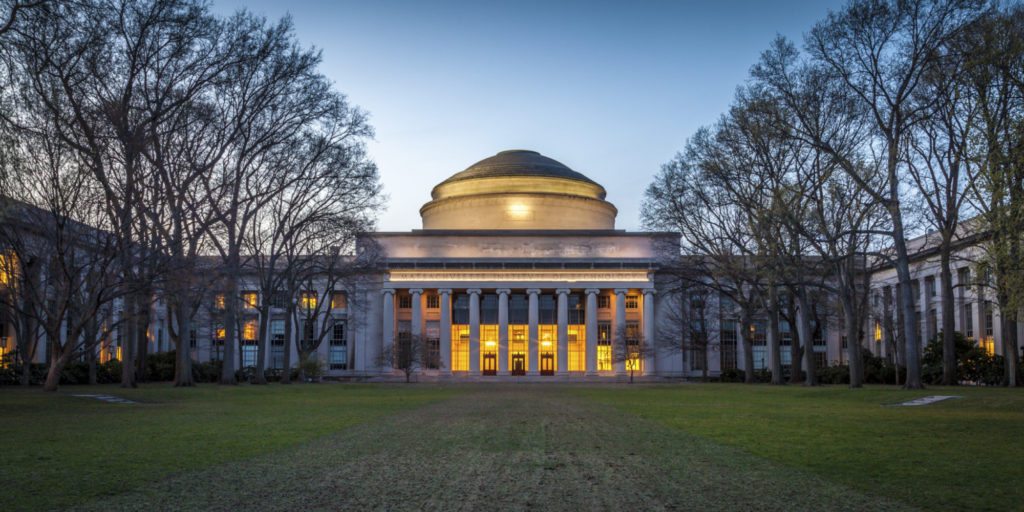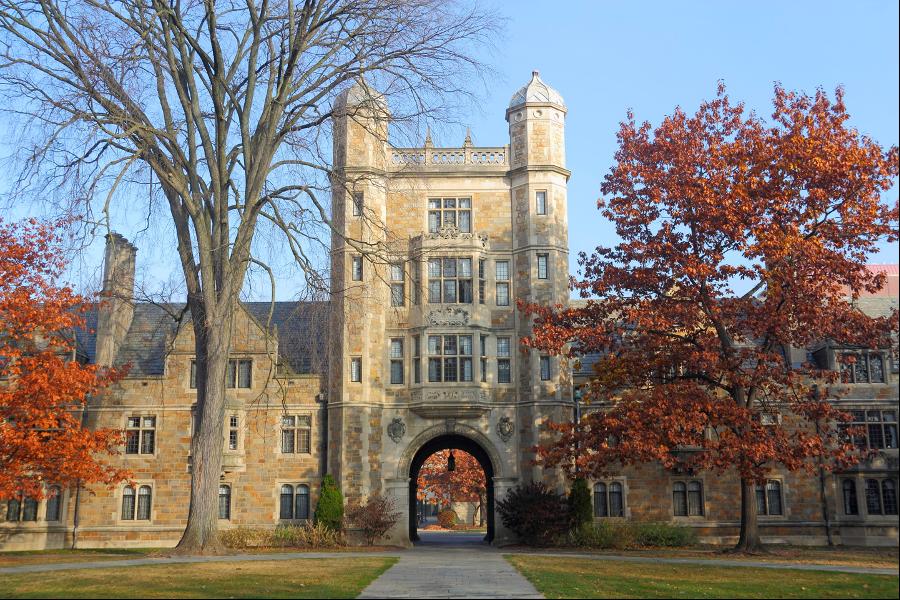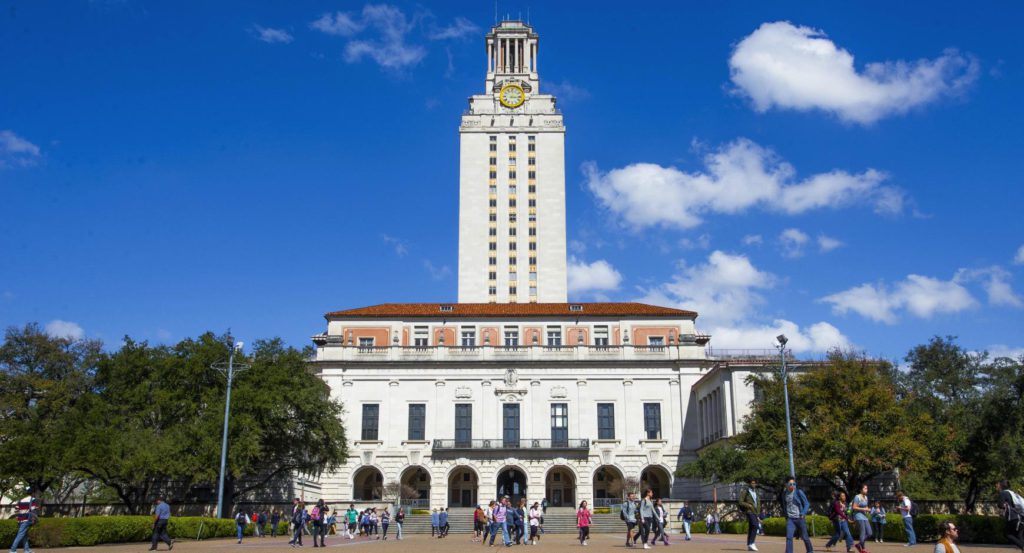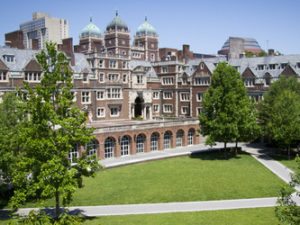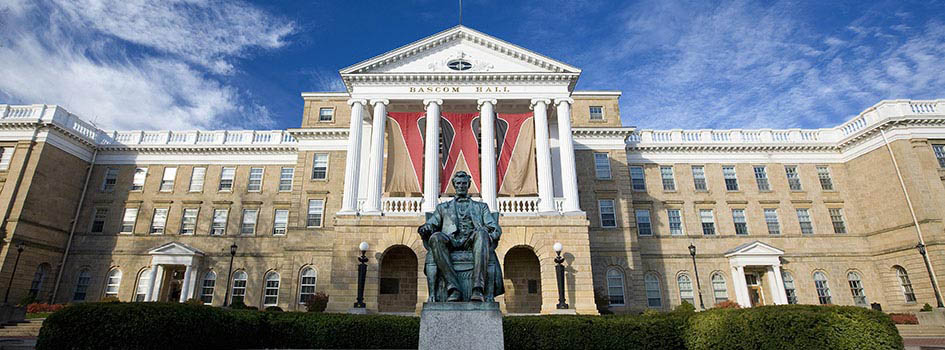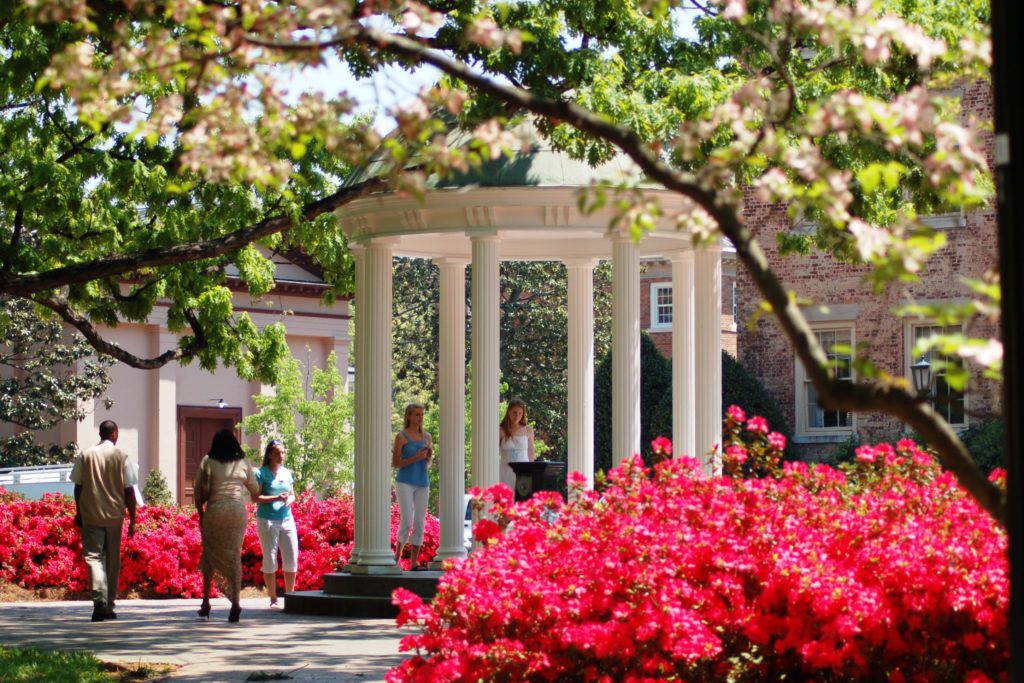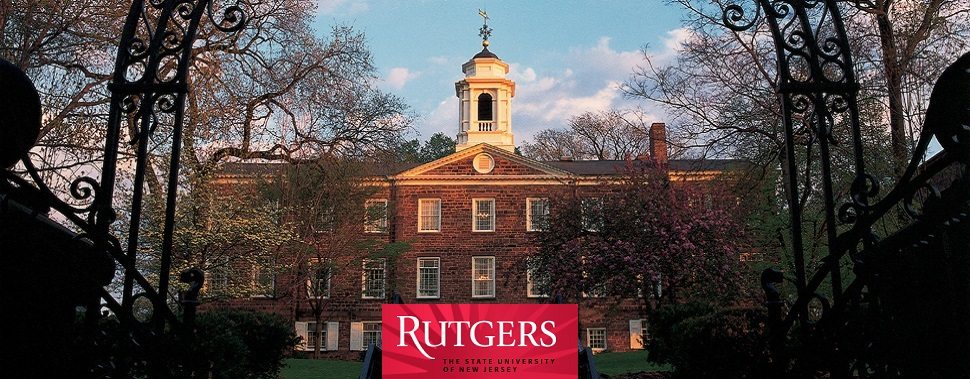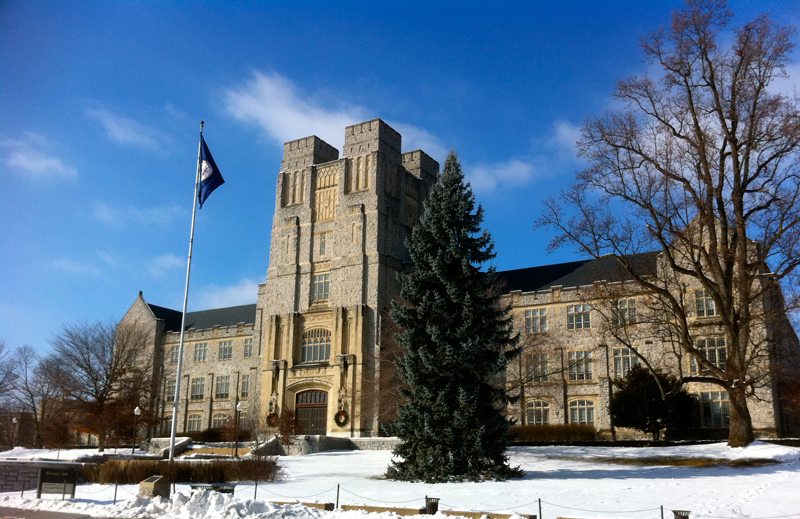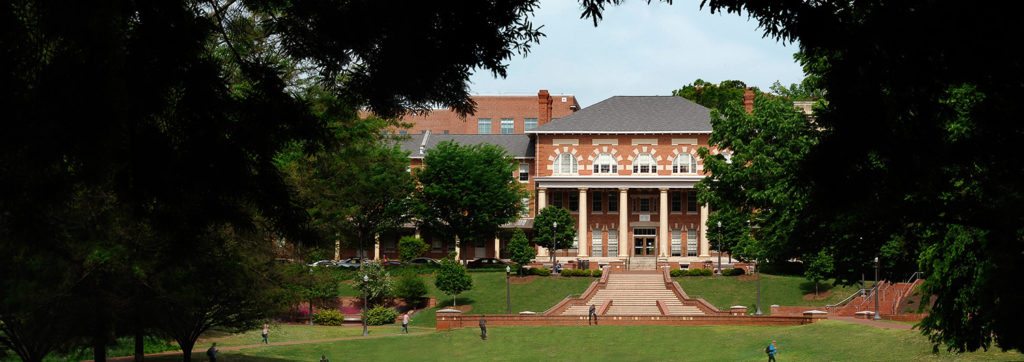SPECIALIZATIONS
Not just a degree for the “geeks” anymore, Computer Science is a leading industry that is behind the biggest research and innovations in our modern world.
 With each year, science and technologies continue to evolve, grow, and thrive as consumers continue to demand faster, better, and stronger machinery and operating systems to power their lives.
With each year, science and technologies continue to evolve, grow, and thrive as consumers continue to demand faster, better, and stronger machinery and operating systems to power their lives.
Thus, more and more creative minds are needed to further expand the industry and to help discover new technologies that can be implemented in all facets of our lives.
Looking to earn your master’s degree through an online program? Check out our ranking of the Best Online Master’s in Computer Science Degrees and decide if a flexible distance learning program is a good fit for you.
According to the U.S. Bureau of Labor Statistics (BLS), the computer science industry is projected to grow much faster than other industries over the next 10 years. From smartphones and smart cars, to the technology used in hospitals and universities, computer science is an industry that forces us to continue looking towards the future. Because of these implications, graduate degrees in computer science are now even more competitive and desirable than ever before.
Universities around the world are now offering extremely competitive Master’s degrees in Computer Science for those who are looking to make an impact and change the world. From traditional research- and coursework-based degrees, to degrees paired with journalism and psychology courses, the opportunities are endless. Whether you have a background in the industry or are completely new to all things compsci-related, there is a program out there specially suited for you.
And, now, jobs in the computing industry are among the highest-paying for new graduates; according to the BLS, the median annual wage for computer and information technology occupations was $82,860 in May 2016, and even higher for those with an advanced degree (think: over 100k!).
Employers often prefer candidates with advanced degrees, especially for high technology research and development positions. Forbes projects the demand for these types of jobs to increase by 27 percent by 2018.
Think a degree in Computer Science means you’ll be tied to a computer and deemed “anti-social” for the rest of your life? Think again. From movie animation and programming, to building and designing business applications, exciting computer games and life-saving operating systems, other top jobs for computer science graduates can include: Research Scientist, Big Data Analyzer, Mobile Application Developer, Software Architect and Developer, and Healthcare IT.
Companies like Microsoft, Google, Apple, Raytheon, and Amazon love to hire folks with backgrounds in Computer Science…start your journey to computing success today with one of the 50 Master’s degrees below!
1. Massachusetts Institute of Technology
Massachusetts Institute of Technology, more commonly known as MIT, is a private university based in Cambridge. The Institute is world-renowned for its cutting-edge science and technology programs; the soul of MIT is research. To date, 87 Nobel Prize Laureates have graduated from MIT.
What makes MIT unique is the school does not offer a terminal Master’s degree in Computer Science. Rather, students must apply for a PhD; all PhD students will earn a Master’s degree as they work towards their PhD. MIT offers the below Master’s degrees in conjunction with those pursuing a PhD:
- Master of Engineering in Computer Science
- Master of Engineering in Computer Science and Molecular Biology
- Master of Science in Electrical Engineering and Computer Science
The Master of Engineering degrees are available to MIT undergraduates only and the Master of Science degree is required of students pursuing a doctoral degree. If you do not have a Master’s degree when you apply, you will receive that degree first before proceeding to the PhD.
All MIT graduate degree programs have residency requirements, and also require completion of an acceptable thesis prepared in residence at MIT. Prospective students should already have a very strong background in math, physics, computer science, or engineering. Admission to MIT is extremely competitive.
2. Stanford University 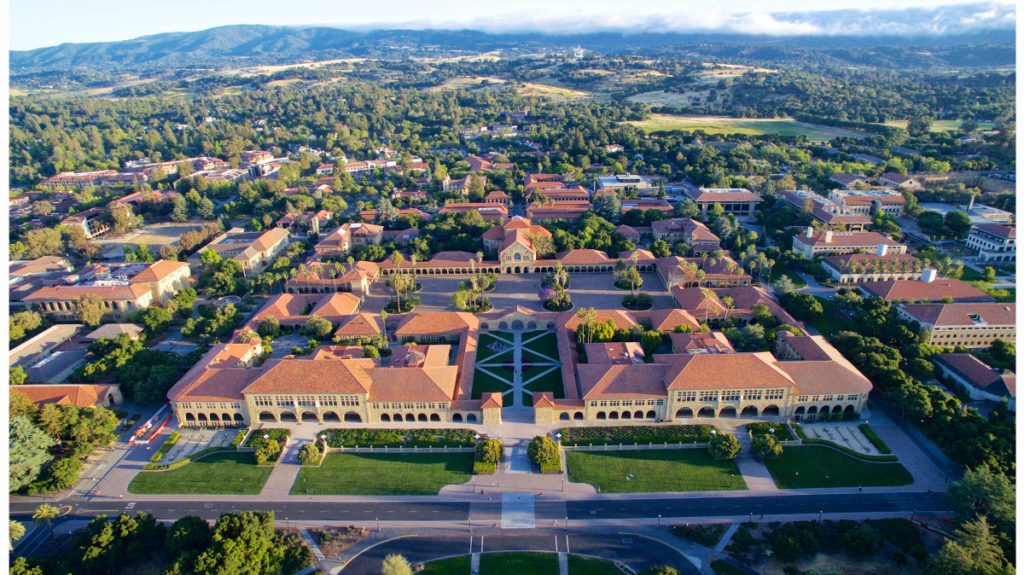
Stanford University, based in sunny Stanford, CA, boasts one of the largest campuses in the United States. With more than 6,000 externally sponsored projects and a total budget for such projects set at $1.6 billion, this private university is a leading research institution. In fact, Google got its start at Stanford back in 1996 when two computer science graduate students developed the page-rank algorithm.
The Master of Science degree in Computer Science at Stanford guarantees that graduates have a broad grounding in computer science as a discipline as well as additional depth in a particular specialty.
Specialities include: Artificial Intelligence, Biocomputation, Computer and Network Security, Human-Computer Interaction, Information Management and Analytics, Mobile and Internet Computing, Real-World Computing, Software Theory, Systems and Theoretical Computer Science.
Stanford also offers joint degree programs, including:
- Joint MS in Computer Science / MBA
- Joint MS in Computer Science / Law Degree
The central requirement for the MSCS degree at Stanford is completion of at least 45 units that represent an approved academic plan.
3. University of California—Berkeley 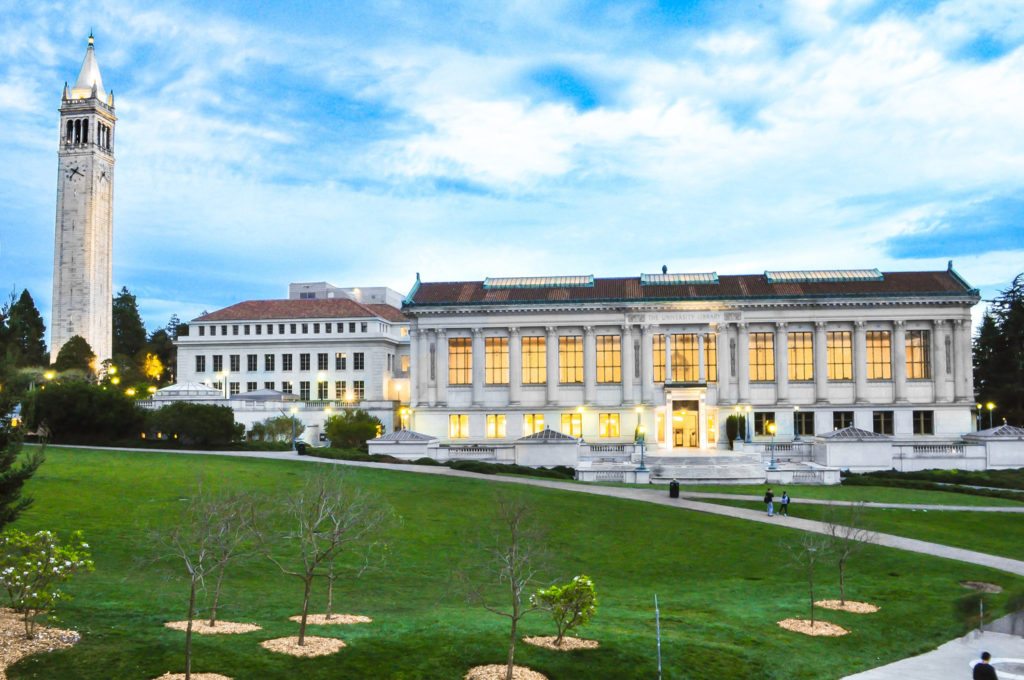
UC Berkeley is a public research university and has been ranked the #1 Public University in the United States. Overlooking the San Francisco Bay, this university has 14 schools and colleges – many of which earn top rankings year after year.
The Department of Electrical Engineering and Computer Sciences (EECS) at UC Berkeley offers one of the most brilliant research and instructional programs anywhere in the world. The school offers two graduate programs in Computer Science:
- Master of Science (MS)
- Doctor of Philosophy (PhD)
Computer Science courses include: Principles & Techniques of Data Science, Computer Architecture and Engineering, Computer Security, and many more. The EECS department’s list of active teaching faculty includes eight winners of the Berkeley Campus Distinguished Teaching Award, guaranteeing students are learning from the best and brightest.
4. Carnegie Mellon University 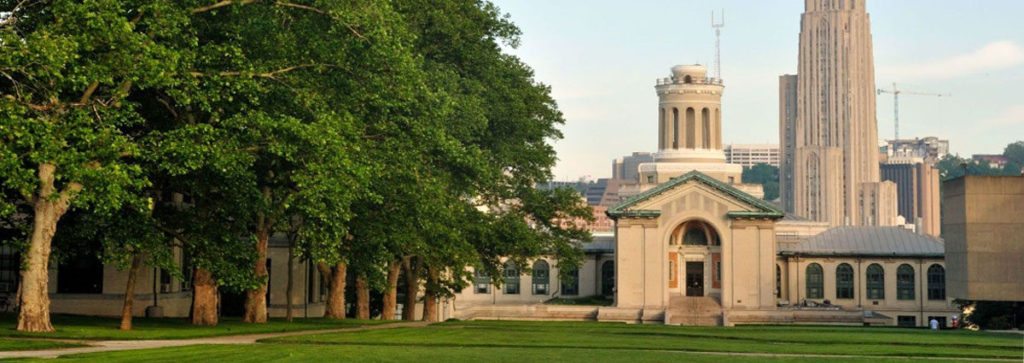
Based in Pittsburgh, Pennsylvania, Carnegie Mellon University is a private research university that was founded in 1900 by American industrialist Andrew Carnegie. The most popular major at Carnegie Mellon is Computer Science, and with good reason. The school constantly ranks high overall, but particularly in areas of math and science.
What’s unique about the M.S. in Computer Science at Carnegie Mellon is that the program isn’t based on a fixed set of courses. Rather, students construct their own course of study, in consultation with an advisor. The program consists entirely of coursework, and there is little to no research component – compared to Carnegie Mellon’s Ph.D. in Computer Science which is, above all, a research degree.
The school also offers a Fifth Year Master’s Program specifically for current students who are already on track to receive a B.S. in Computer Science. It’s a great way for students to save time and cut costs, so they can continue forward in the field.
5. Princeton University 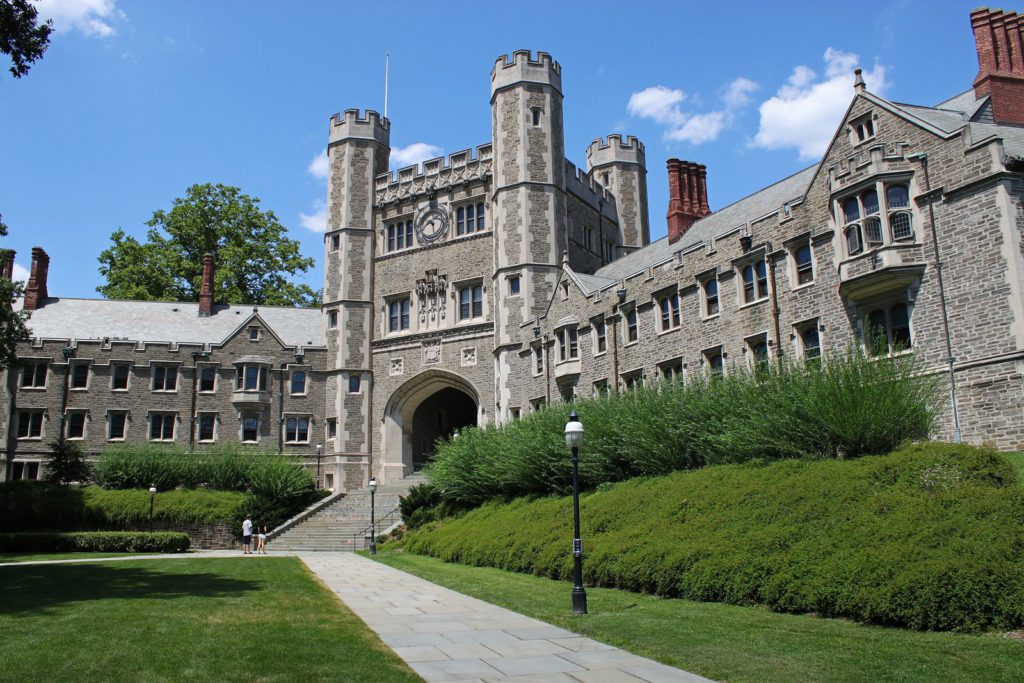
Princeton University is a private Ivy League research university based in Princeton, New Jersey and was ranked #1 in the 2017 Best National Universities category of U.S. News & World Report’s Best College Rankings. Noteworthy alumni include U.S. President Woodrow Wilson, Malcolm Forbes and former first lady Michelle Obama.
The Department of Computer Science at Princeton offers a Master of Science in Engineering (M.S.E.), which is a two year, full-time program of coursework, plus submission of an original thesis. All students choose a subarea of computer science to focus on and write a thesis under the direction of an advisor. Students can also opt to switch to the Master of Engineering (M.Eng.), non-thesis track. Courses may include:
- Theoretical Machine Learning
- Advanced Computer Graphics
- Great Moments in Computing
- Data Structures and Graph Algorithms
Prospective students to Princeton’s CS school are expected to have completed a bachelor’s or master’s degree in engineering, science, or mathematics; a degree in computer science is not required.
6. Cornell University 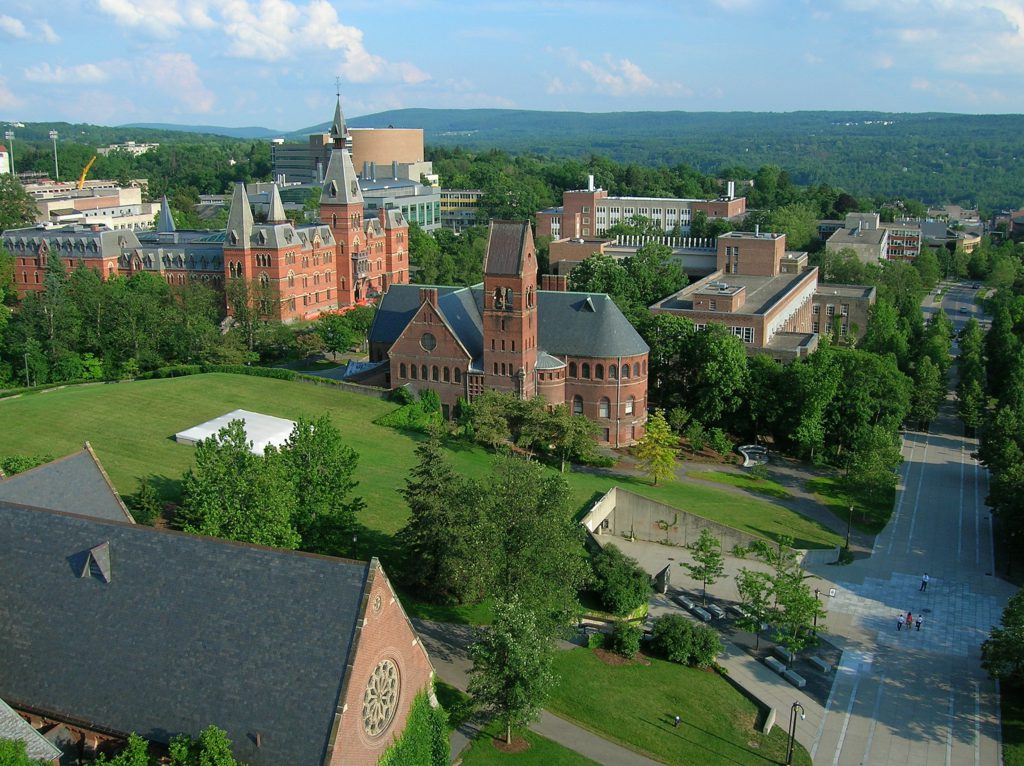
An American private Ivy League based in Ithaca, New York, Cornell continues to attract students from every state and more than 120 countries. With 45 affiliated Nobel laureates, Cornell is continually ranked as one of best universities in the world. Notable alumni include Bill Nye, Ruth Bader Ginsburg, and Kate Snow.
The CS MS at Cornell is a small, extremely selective, four-semester program for students who are looking to deepen their knowledge of computer science through advanced coursework, research, writing, and teaching. Perks of the program include:
- Health insurance
- Full tuition coverage
- Stipend to cover basic living expenses
Sounds too good to be true? Well, students have to work for it! All students in the CS MS program serve as teaching assistants during all four semesters. Students at Cornell are extremely talented and hard-working. In recent news, four Cornell computer science researchers received $2.5 million from the National Science Foundation (NSF) to develop software tools to improve cybersecurity.
7. Georgia Institute of Technology 
Based in Atlanta, Georgia, this public research university was founded in 1885 and is still going strong over 130 years later. Georgia Tech is classified by the Carnegie Foundation for the Advancement of Teaching as a university with very high research activity. Georgia Tech consistently ranks among the top U.S. universities in the volume of research conducted, and in 2016, the university conducted over $790 million in research.
Georgia Tech’s College of Computing offers nine different master’s degrees. Two of which include: the Master of Science in Computer Science and the Online Master of Science in Computer Science (OMS CS). Students pursuing the M.S. CS may choose from one of the following three options:
- Course Option: 30 hours of coursework (no M.S. project or thesis hours)
- Project Option: 21 hours of coursework and a 9-hour project
- Thesis Option: 18 hours of coursework and a 12-hour thesis
Admission to this program is extremely selective; having a strong undergraduate background in computer science, including C programming, is highly recommended for applicants.
8. Harvard University 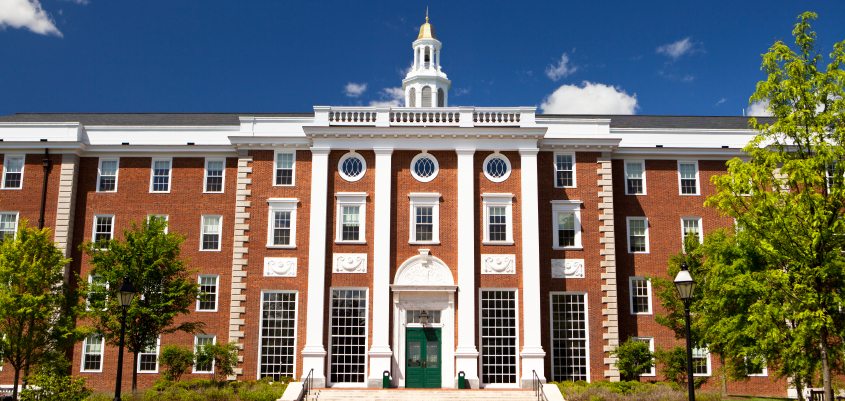
Established in 1636 and based in Cambridge, MA, Harvard is the United States’ oldest institution of higher learning. Made up of 13 schools and institutes, Harvard is a private university and, perhaps, the most well-known of all the Ivy League’s. Harvard boasts many honors, including: 47 Nobel Laureates, 32 heads of state and 48 Pulitzer Prize winners.
Harvard’s John A. Paulson School of Engineering and Applied Sciences does not offer a terminal master’s degree in computer science. Students who are looking to earn their master’s degree quickly to move toward professional pursuits may be better off studying elsewhere. An S.M. degree in computer science can only be earned en-route to the Ph.D. degree or via the A.B./S.M. program, which is only open to Harvard undergrads.
However, Harvard offers two master’s degrees in Computational Science and Engineering (both a Master of Science and Master of Engineering) which may be of interest for those who wish to apply directly to a master’s program. The Master of Science in CSE is a one-year program that provides rigorous training in mathematical and computing foundations; students work on independent research projects and elective courses.
9. University of California— Los Angeles 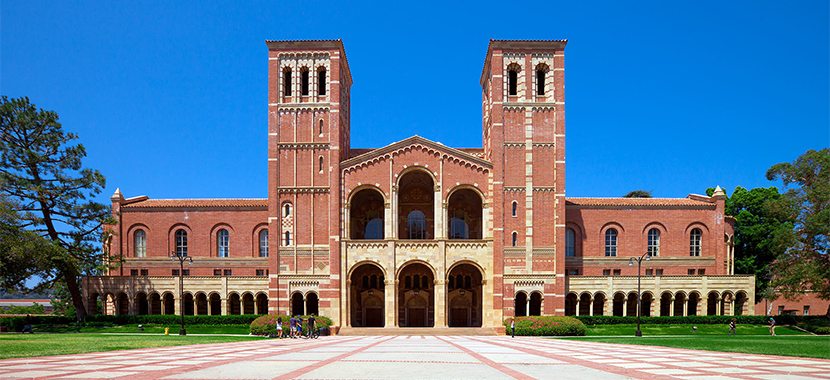
UCLA is a public research university in the second largest city in the United States: Los Angeles, California. UCLA offers nearly 150 graduate degree programs and, since 2010, the university has averaged nearly $1 billion annually in competitively awarded research grants and contracts. UCLA is currently ranked the 2nd best public school, according to U.S. News 2017 Best Colleges rankings.
UCLA’s Henry Samueli School of Engineering and Applied Science offers a Master of Science degree in Computer Science. M.S. students at UCLA aren’t required to select a major field. Rather, they may choose from a broad selection of courses, including any combination from the following fields: artificial intelligence, computational systems biology, computer networks, computer science theory, computer system architecture, graphics and vision, information and data management, and software systems.
Students of UCLA are encouraged to make contributions to design, development, and production in the practice of computer science. The average length of time it takes for students to complete the CS M.S. program at UCLA is six quarters.
10. University of Illinois— Urbana- Champaign 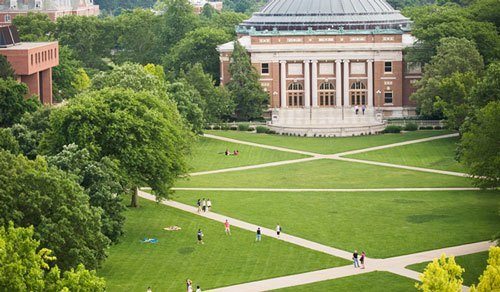
This public institution founded in 1867 is comprised of 17 schools and colleges and is just a few hours drive from Chicago. The university is home to over 80 laboratories, institutes and research centers, including the Beckman Institute for Advanced Science and Technology and the National Center for Supercomputing Applications.
The Master of Science (M.S.) in Computer Science at this university is a research-oriented degree that requires 28 credit hours of coursework and 4 credit hours of thesis. It can also be counted towards the Ph.D. in Computer Science. Courses may include:
- Human-Computer Interaction
- The Art of Web Programming
- Pseudorandomness
- Applied Parallel Programming
University of Illinois’ Computer Science department has a global reputation for developing revolutionary technology and major industry collaborations, including multi-million dollar parallel computing and cloud computing research centers. In 2015, research expenditures totaled over $32 million.
11. University of Michigan— Ann Arbor
This public research university in Ann Arbor, Michigan offers over 250 degree programs and is ranked #27 in the 2017 edition of Best Colleges is National Universities. This diverse university strongly promotes collaboration and interdisciplinary research initiatives, involving both faculty and students from across the campuses 19 schools and colleges.
University of Michigan offers a Master of Science in Computer Science and Engineering (CSE). The program takes about two years to complete and requires 30 credit-hours of graduate-level coursework. Courses may include:
- Semiconductor Optoelectronic Devices
- Control Systems Analysis and Design
- Microwave Radiometric Remote Sensing
EECS students are known to create technology that puts the smart in electronics, from making x-ray scans safer and monitoring your health and fitness, to helping autonomous vehicles and robots navigate safely and discovering the secrets of the brain. Alumni of this program now work to solve critical issues at companies including Apple, Google, NASA, Ford, IBM Research Labs, and Microsoft.
12. University of Washington 
The University of Washington is a public research university nearby Seattle that was founded in 1861 and is one of the oldest universities on the West Coast. UW is a top-ranked school that receives the most federal research dollars of any other public university in America. Tech giants based near Seattle, including Amazon and Microsoft, rely on UW students for their innovative ideas.
The Paul G. Allen School of Computer Science and Engineering at the University of Washington offers three excellent graduate programs which are top-ranked in the country. However, there is no full-time Master’s program available at UW. Each program has different requirements:
- Full-time Ph.D. Program: Offers an integrated Master’s degree.
- Part-time Professional Master’s Program: This is an evening program for employed professionals, typically completed in 2.5 years. All PMP students must be living and working in the Seattle area at the time of application.
- Combined Bachelor’s/Master’s Program: This program is available to currently enrolled UW Seattle Computer Science or Computer Engineering majors only.
Fun fact: Approximately 35% of UW’s computer science graduates end up working at Amazon, Google, or Microsoft!
13. Columbia University 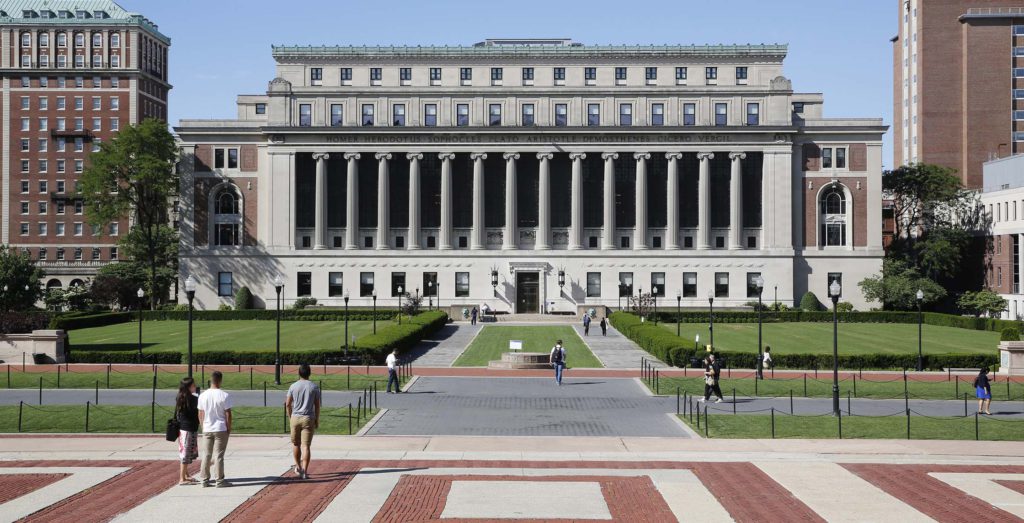
Columbia University is a private Ivy League that was established in 1754 and is located on the Upper West Side of Manhattan. The university’s ranking in the 2017 edition of Best Colleges is #5 for National Universities. Known for leading the research pack in engineering, computers, technology and medicine, students and faculty at Columbia are driven, passionate and extremely successful.
Columbia’s computer science program provides students with a unique opportunity to develop cutting-edge in-depth knowledge through coursework and use of state of the art research facilities. The school offers a few options for those interested in computer science:
- Master of Science (MS) in Computer Science
- Master of Science (MS) in Computer Engineering
- Dual MS in Journalism and Computer Science
It may seem that journalism and computer science is an odd combination compared to offerings by other schools on this list. However, it’s really no wonder that Columbia has expertly designed a program combining both journalism and computer science; their j-school is consistently ranked among the top in not just the country, but the world. Students in this program will learn about the impact of digital techniques on journalism, the emerging role of citizens in the news process, the growing influence of social media, and the changing business models of news gathering.
14. University of Texas— Austin
University of Texas–Austin (UT) was founded in 1883 and is world-renowned as a higher education, research, and public service institution. One of the largest schools in the nation, UT has earned recognition as one of the “Public Ivies,” and is ranked #56 in National Universities (US News and World Report).
The Computer Science graduate program at UT was established in 1966 and is consistently ranked as one of the top 10 computer science programs in the United States. The Master’s program at UT is a terminal degree, flexibly designed to enhance students’ knowledge in the field and prepare them for prosperous careers in computing. The department offers two Master’s degree options:
- MSCS with thesis
- MSCS with no thesis/no report
Both degrees require 30 hours of coursework. The no thesis/no report option is defined by more organized coursework than the thesis option. No matter their choice, students at UT can look forward to learning and researching areas of artificial intelligence, computer architecture, model-driven engineering, and much, much more.
15. University of Pennsylvania
Established in 1740 and located in Philadelphia, Pennsylvania, Penn is a private Ivy League university that is currently ranked 8th in the United States in the 2017 edition of U.S. News’ Best Colleges. Both Penn faculty and students share a passion for engaging with communities around the world and positively impacting the planet through research and innovation.
The Department of Computer and Information Science (CIS) at Penn offers not just one or two, but five different Master’s degrees in Computer Science within its school of engineering. Students may choose between pursuing the following degrees:
- Master of Science in Engineering (MSE) in Computer and Information Science (CIS)
- Master of Science in Engineering (MSE) in Embedded Systems (EMBS)
- Master of Science in Engineering (MSE) in Computer Graphics and Game Technology (CGGT)
- Master of Science in Engineering (MSE) in Robotics (ROBO)
- Master of Computer and Information Technology (MCIT)
None of Penn’s above graduate programs offer an online or distance learning component. Those with little to no prior experience in computers, but who are interested in pursuing a career in computing and technology, are recommended to pursue the Master of Computer and Information Technology (MCIT) degree.
Graduates of Penn have gone on to work as software development engineers at Microsoft, Systems Engineers at Lockheed Martin, researchers in the nation’s leading universities, and more. The opportunities are endless through Penn!
16. University of California— San Diego 
The University of California, San Diego is a public university that was established in 1960 and is the 7th oldest of the 10 University of California campuses. With over $1 billion in annual research funding, UCSD is recognized as one of the top 15 research universities in the world. In fact, over 650 companies have been launched by, or use, technology produced by UCSD faculty, staff and alumni. UCSD faculty members are highly sought after and well-recognized, including several IEEE Fellows.
The UCSD Department of Computer Science and Engineering (CSE) offers a Master of Computer Science degree through the Jacobs School of Engineering. The department also offers a PhD in both Computer Science and Computer Engineering. Both programs may be completed either full time or part time, depending on the student’s schedule.
The Master’s degree is offered with the title Computer Science and Engineering or Computer Science and Engineering (Computer Engineering). The degree is offered under the following plans:
- The Thesis (Plan I),
- The Comprehensive Examination (Plan II)
- Comprehensive Interdisciplinary (Plan III)
Each plan requires 49 units of work and, for full-time students, all requirements can be completed within two years.
17. Yale University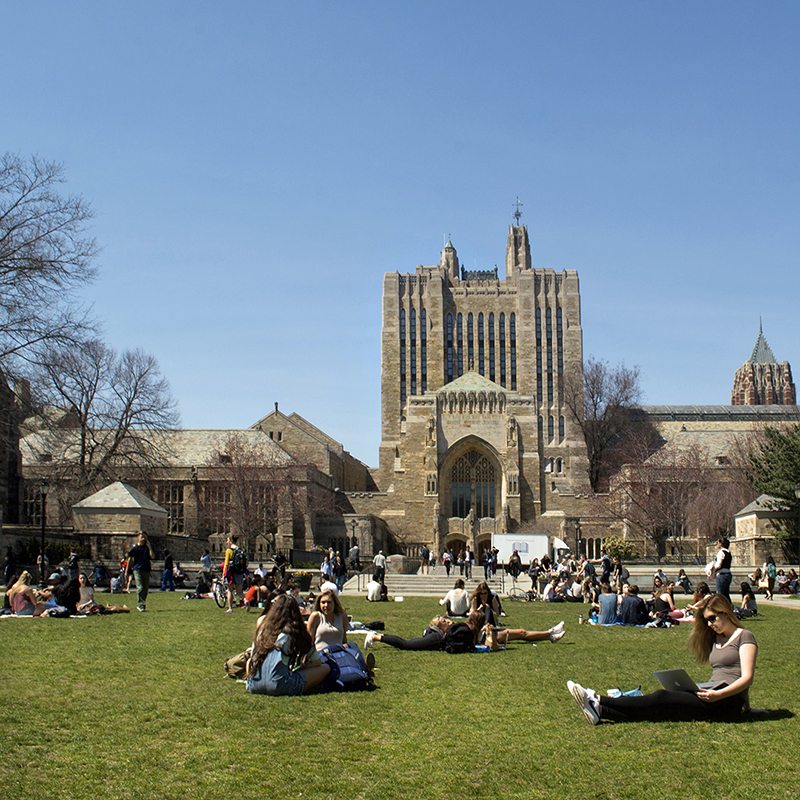
Established in 1701, Yale is a private Ivy League research university based in New Haven, Connecticut. Yale is consistently ranked within the top three universities in the country, and within the top 15 universities worldwide.
The renowned Master of Science (MS) program at Yale is intended for students who plan to pursue a professional career directly after obtaining their degree rather than continuing on in a PhD program. The Yale Computer Science MS is specially designed to expand students depth of knowledge beyond the scope of an undergraduate degree. This program is unique in that students are able to study with faculty in small classes, and on a more close-knit, one-to-one basis. The school offers 3 tracks within the program:
- General Track
- Specialized Track in Bioinformatics
- Specialized Track in Computing and the Arts
Specialized Tracks allow students to work more closely with faculty and students in a chosen area and to do an independent project. Participation in specialized tracks is not explicitly depicted on a student’s diploma or transcript; it is simply a more tailored program to suit an individual’s interests!
18. University of Wisconsin— Madison
The University of Wisconsin–Madison is a public research university located, as its name would imply, in Madison, Wisconsin. Founded in 1848, UW-Madison is the oldest and largest public university in the state of Wisconsin. The university is 6th in the nation for volume of research conducted and boasts 17 research and service centers. UW-Madison has been ranked in the Top 10 for National Research Spending every year since 1972.
UW-Madison’s Department of Computer Sciences celebrated its 50th anniversary in 2014; the department is one of the oldest in the United States. Many CS courses have research-intensive project components.The department offers two graduate degree programs:
- The Traditional M.S./Ph.D. Program
- The Professional Master’s Program
The Traditional MS Program offers a Master of Science in Computer Sciences (MS in CS) degree with an optional project or thesis. The Professional Master’s Program was designed in 2014 for working professionals who wished to complete the program and earn an M.S. degree within two years.
Madison also has a number of high-tech companies that are transforming the city into a high-tech hub. In fact, in 2008, Google established an engineering office in Madison!
19. Brown University 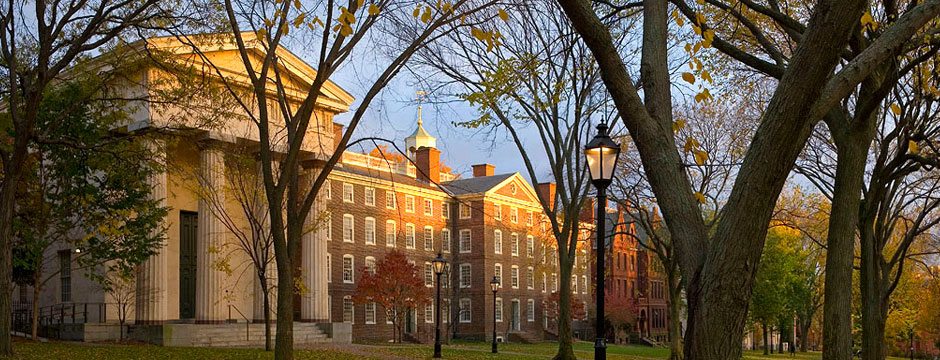
This private, Ivy League university based in Providence, Rhode Island is home to mascot Bruno the Bear and offers 28 distinct Master’s programs. Brown is frequently recognized for its global reach and gorgeous campus facilities. Noteworthy alumni of Brown include John D. Rockefeller Jr., John F. Kennedy Jr. and CNN founder Ted Turner.
Brown’s Computer Science department was created in 1979 and has consistently maintained a high ranking over the years for innovative research from both students and faculty. Research areas the department participates in include: algorithms, cloud computing, computational biology, computer graphics, cryptography, machine learning, and many more. The research facilities available to graduate students are state of the art. Master’s degree students may choose between the following tracks for completion of their Master in Computer Science degree:
- Thesis track
- Project track
- Coursework-only track
For those interested, Ph.D. candidates can earn a Master’s degree on the way to completing the Ph.D., but students admitted for a terminal Master’s degree cannot automatically transition to Ph.D. candidacy.
20. Rice University 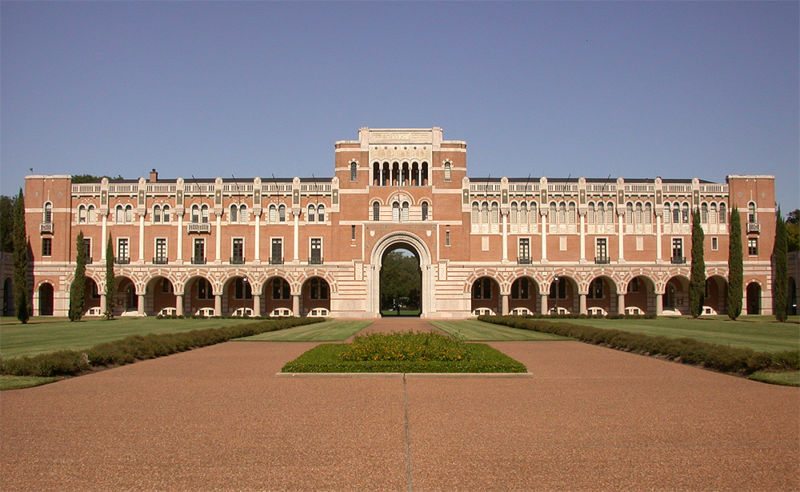
Rice is a private research university founded in 1912 and is based in the nation’s fourth largest city: Houston, Texas. The university is currently ranked #15 according to the 2017 Best National Universities category of U.S. News & World Report’s Best College Rankings. Rice has long been at the forefront of computing technology; in fact, Rice professors Robert Curl, Richard Smalley, and British chemist Sir Harold Kroto received the Nobel Prize in chemistry for their discovery of buckyballs, which introduced an entirely new field of nanotechnology.
The Master of Computer Science (MCS) degree at Rice is a terminal degree intended for students who plan to pursue a technical career in the computer industry. The MCS program typically requires three semesters of full-time study, and balances theory and practice, drawing recent research results into the classroom to better prepare students for extraordinary success.
The Department of Computer Science is one of Rice University’s largest departments and, through the efforts of faculty and students, the department has an outstanding reputation. In fact, it was ranked #1 in the U.S. in faculty scholarly productivity by the Chronicle of Higher Education.
21. Duke University 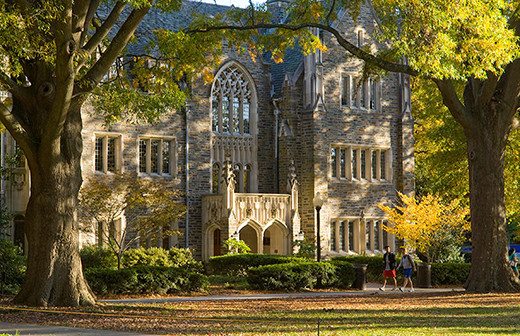
Duke is a private research university located in Durham, North Carolina. Duke’s graduate and professional schools – in business, engineering, the environment, law, medicine, and public policy – are among the leaders in their fields. Duke is currently ranked 8th in the United States in the 2017 edition of U.S. News’ Best Colleges.
The Master of Computer Science program at Duke is small and very selective. Small class sizes help to differentiate Duke from other programs, as it allows students to gain more one-on-one attention from faculty members. The department offers two options for MS candidates:
- Course-only option MS
- Thesis/Project-based MS
Duke also offers a unique Master of Science in Economics and Computation (MSEC) Program for those interested in a joint master’s program of the Departments of Economics and Computer Science.
Recognized worldwide as a leading top-level program, the Computer Science Graduate Program at Duke provides students with the opportunity for collaboration with other departments, including biology, economics, business, and medicine. Duke is also very close to Research Triangle Park which provides graduates endless opportunities to work with high-tech companies and other major universities.
22. University of Maryland— College Park 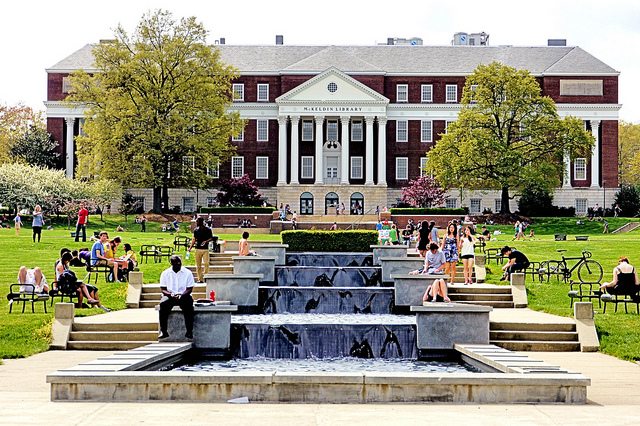
A public research university located in the city of College Park, Maryland, this university is just 4 miles from the hustle and bustle of Washington, D.C. The nearby proximity to the nation’s capital lends itself to many exciting research partnerships with the federal government. Students and faculty may get to work with agencies, including: the National Institutes of Health, NASA, the Department of Homeland Security, and the National Institute of Standards and Technology.
The graduate program within the Computer Science Department at UMD is ranked among the top in the nation and in the top ten among public universities. The department offers both thesis and non-thesis options for the M.S. degree in Computer Science. Research can be done in a variety of areas, including: Artificial Intelligence, Human-Computer interaction, Software Design, Security and Cryptography, and Quantum Computing.
The M.S. degree usually takes between 2 and 2.5 years to finish. A joint BS/MS degree program is also offered, allowing current students to obtain both degrees within 5 years.
23. California Institute of Technology 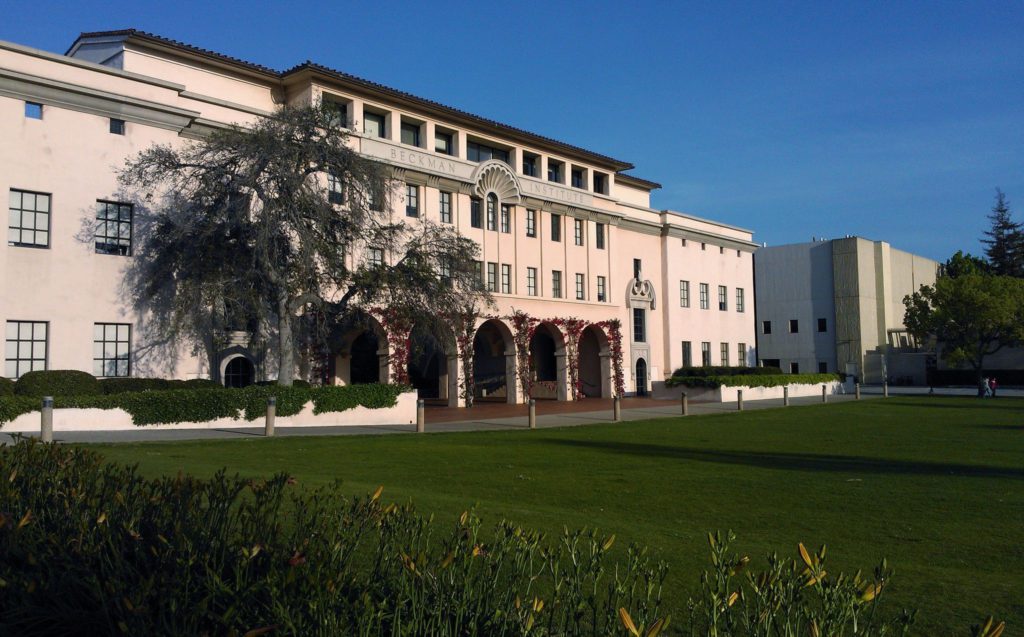
The California Institute of Technology, more popularly known as Caltech, is a private doctorate-granting university located in Pasadena, California. The Institute is world-renowned in areas of science and engineering. Caltech also boasts one of the nation’s lowest student-to-faculty ratios, ensuring all students get the hands-on learning treatment that they deserve.
There is no terminal M.S. degree in Computer Science offered at Caltech. Rather, the program is a research-based computer science degree oriented toward earning a Ph.D. The faculty at Caltech understand how pervasive, wide-reaching, and unavoidable computation is in our daily lives, now so more than ever, and the program reflects that. The M.S. degree entails a thesis and coursework and is typically awarded in the first two years as part of the overall progress toward the Ph.D.
Students of Caltech can expect to receive a strong grounding in the mathematical and algorithmic foundations of computing, and, upon graduating, will be prepared to utilize their skills and learning to tackle difficult problems in the computer science industry and beyond.
24. University of Southern California 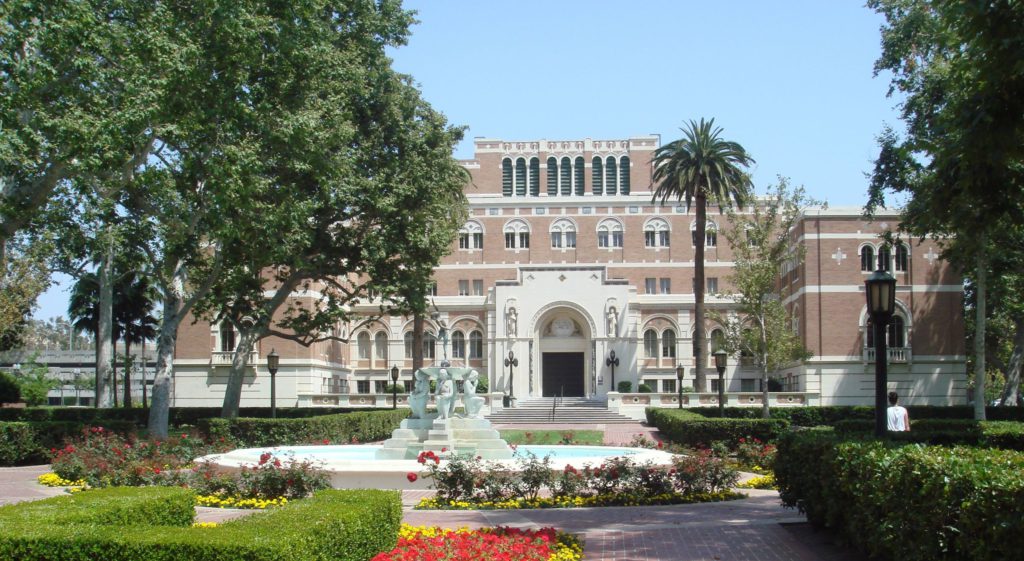
The University of Southern California was founded in 1880 and is the oldest private research university California. In a comprehensive new ranking, The Wall Street Journal and Times Higher Education ranked USC 15th among 1,061 public and private universities. Located in the heart of LA, USC is leading the way in all subject matters but especially in science and technology.
The USC Department of Computer Science offers a Master of Science in Computer Science with a general option where students can design their own focus. Students may also select from one of eight specializations, some of which can be completed online: Computer Security, Game Development, Computer Networks, Software Engineering, High Performance Computing and Simulation, Intelligent Robotics, Multimedia and Creative Technologies, and Data Science.
The M.S. degree at USC can be completed entirely with coursework, however there is an optional thesis available for those students who are more research-oriented.
25. University of Chicago 
The University of Chicago is a private university that was established in 1890 and is currently ranked third among national universities in U.S. News & World Report’s 2017 “Best Colleges” rankings. UChicago research has led to incredible breakthroughs, including: discovering the link between cancer and genetics, establishing revolutionary theories of economics, and developing tools to produce reliable, urban schooling.
The Master’s Program in Computer Science at UChicago offers four Programs of Study for graduate students:
- MS in Computer Science
- MS in Computer Science (with immersion)
- Pre-Doctoral MS in Computer Science
- Joint MBA/MPCS Program
Each program is specifically tailored for students to make sure they get the most out of their experience at UChicago. For example, the MS in Computer Science offers a 9-Course MS in Computer Science Program (which can be completed in just 9 months, if full time) and a 12-Course MS in Computer Science Specialization Program which can be completed in 15 months, if full time.
Meanwhile, the MS in Computer Science (with immersion) is for those just starting a career in technology with no background in computer science, programming or discrete math. No matter the program, every student is prepared for an enriching career in the field.
26. University of North Carolina—Chapel Hill
Established in 1964 by Dr. Frederick P. Brooks Jr., the Department of Computer Science at UNC was one of the first of its kind in the United States and has been ranked #31 in the Academic Ranking of World Universities in Computer Science. The Master in Computer Science at UNC educates students on theory and concepts relevant to their application in practice. Most UNC students complete the graduate program within two years.
Admission to the graduate programs in computer science at UNC is extremely competitive. All applicants should already have a strong foundation in mathematics and computer science.
27. Johns Hopkins University 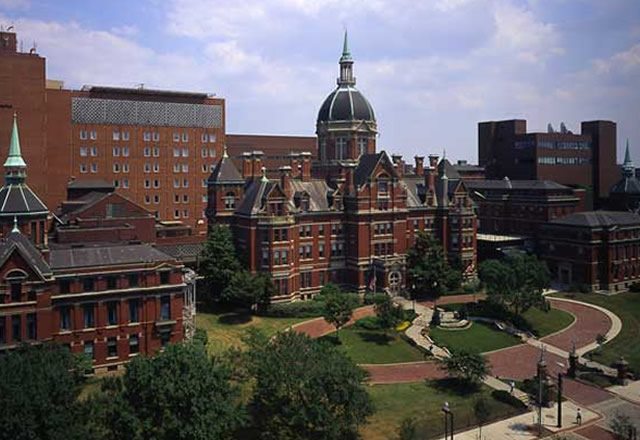
Founded in 1876, this private research university in Baltimore, Maryland gets its name from American entrepreneur and philanthropist, Johns Hopkins. The university currently stands tall at No. 10 overall among national universities in U.S. News & World Report’s 2017 “Best Colleges” rankings. Hopkins’ graduate programs include the top-ranked Bloomberg School of Public Health, Whiting School of Engineering, and the well-regarded Peabody Institute for Music and Dance.
Johns Hopkins Whiting School of Engineering offers a research-centered Master of Science in Engineering (M.S.E.) within the Department of Computer Science. Original research in close collaboration with individual Hopkins’ faculty members is highly encouraged at the graduate level. Students at the graduate level can enjoy a Master’s Lab which is made up of a collaboration area and workstation area, both consisting of several Linux workstations. The Department of Computer Science classifies its courses into three sub-areas:
- Analysis
- Applications
- Systems
All M.S.E. candidates must complete at least two courses from each of the above three areas. Most students complete this program in three full-time semesters. The School of Engineering also offers a Doctor of Philosophy (Ph.D.) program in the Department of Computer Science for those interested.
28. University of Virginia 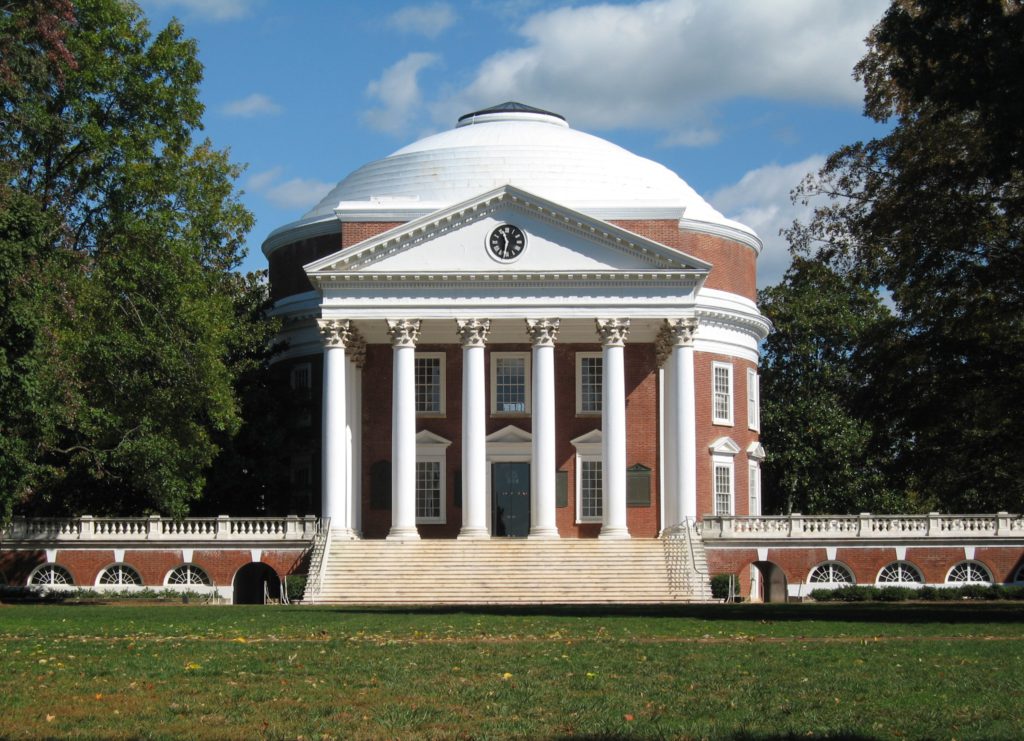
Founded in 1819 by Founding Father Thomas Jefferson, the University of Virginia is a public university and is currently ranked #24 in National Universities by U.S. News & World Report. UVA offers 82 Master’s degrees and fosters close mentoring relationships between students and faculty. UVA’s School of Engineering & Applied Science is highly regarded and earned over $45 million in sponsored research awards in 2016.
UVA’s Computer Science Department offers both Master of Science (MS) and Master of Computer Science (MCS) degrees. The MS degree requires a formal thesis in addition to coursework, while the MCS degree is based primarily on coursework. However, all students are encouraged to complete a research project prior to graduation to make the most of their time at UVA.
The faculty at UVA is as impressive as the students. They are highly active researchers within the computer science and engineering fields. Research initiatives are based in areas including: architecture, high-level computing, wireless networks, graphics, security systems, and more.
29. Northwestern University 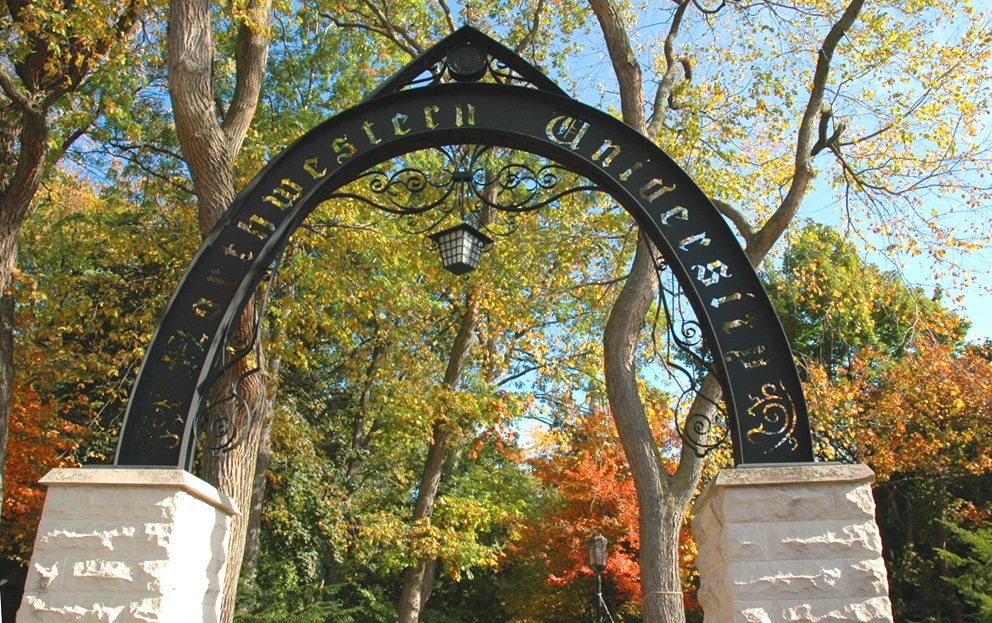
This private research university based in Evanston, Illinois was founded back in 1851. Northwestern is a leading school in research and has received over $640 million in annual sponsored research. In fact, Northwestern is home to more than 50 research centers. The university’s faculty is equally impressive with Tony Award winners, Guggenheim Fellows, and MacArthur Fellowship Recipients.
Northwestern’s McCormick School of Engineering offers a host of graduate degrees, including:
- Master of Science (MS) in Computer Engineering
- Master of Science (MS) in Computer Science
- Master of Science in Robotics (MSR)
- Doctor of Philosophy (PhD) in Computer Science
The Master of Science in Computer Science at Northwestern is heralded for its award-winning faculty members and state-of-the-art research. Since the program is associated with the engineering school, students are taught through a more interdisciplinary approach and students can tailor a curriculum to fit their particular research interests.
McCormick students aren’t just dreamers; they are builders and collaborators, creating the future and empowered by whole-brain thinking from studying at Northwestern.
30. Purdue University 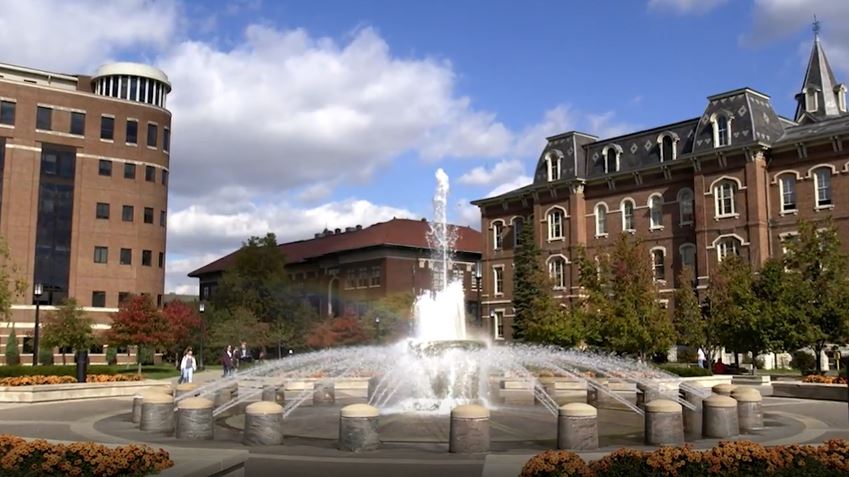
Purdue University is a public research university located in West Lafayette, Indiana that was founded in 1869. Purdue is made up of 12 schools and colleges and offers more than 80 graduate programs. Those who attend Purdue are in the company of some very noteworthy, including popcorn entrepreneur Orville Redenbacher and, the first man to walk on the moon, Neil Armstrong.
In 2014, U.S. News & World Report ranked Purdue as #20 for the Best Computer Science Program. Purdue boasts a broad department that covers a wide range of areas in computer science, including: networking and operating systems, software engineering, bioinformatics and computational biology, and distributed systems. Students obtaining a Master’s from Purdue’s computer science program can opt for either a thesis or non-thesis track.
Purdue’s College of Science also offers an online master’s computer science program, providing working professionals an opportunity to earn non-thesis online Master of Computer Science through distance learning. This Master’s program is for those who have already completed a Bachelor’s degree in Computer Science or Engineering.
31. Dartmouth College 
One of the 8 prestigious Ivy League schools, Dartmouth is a private research university based in Hanover, New Hampshire. Dartmouth is one of just nine universities founded in the United States prior to the American Revolution. It is currently ranked No. 11 overall among national universities in U.S. News & World Report’s 2017 “Best Colleges” rankings.
Dartmouth’s Department of Computer Science offers a standard 2-year (7-term) MS CS program. Students can opt for either a coursework track or a thesis track. What makes Dartmouth unique, aside from the small class sizes and one-one-one interaction, are the different variations offered:
- 4+1 A.B./M.S. Program in Computer Science (for current undergraduates)
- Master in CS with Concentration in Digital Arts
- 4+1 MS with Concentration in Digital Arts (for current undergraduates)
The M.S. Degree in Computer Science with a concentration in Digital Arts (CSDA) is a new concentration within Dartmouth’s two-year program. The CSDA program is divided into three areas: Technical Courses, Digital Art Courses and Research/Thesis Courses. At the end of the program, all students will write, and present, a thesis based on their research.
32. University of California— Irvine 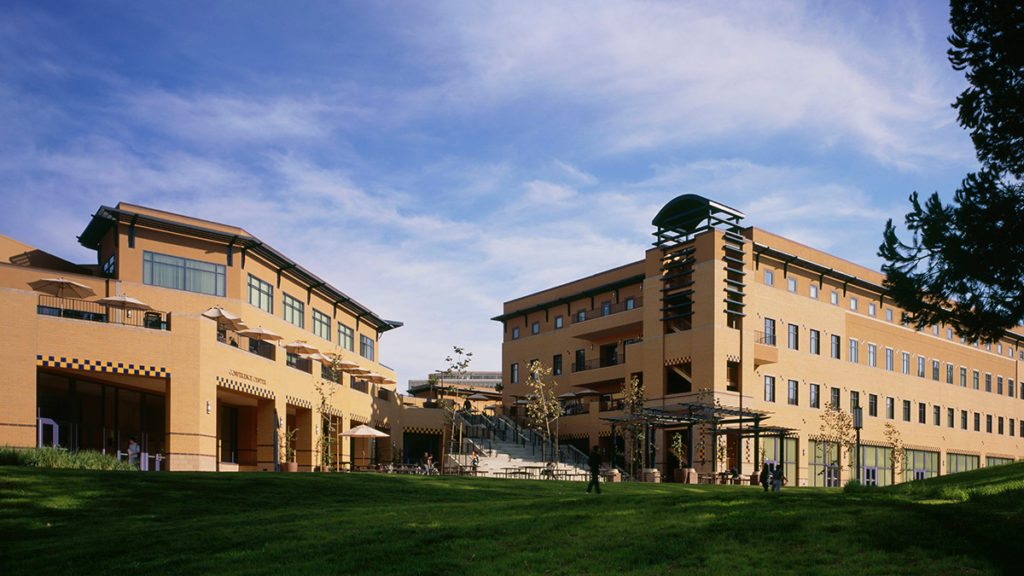
Founded in 1965, UCI is a public university located in Irvine, California. The university is known for its cutting-edge research and rigorous academics, and The New York Times named UCI No. 1 among U.S. universities “doing the most for the American dream” in 2017. Forbes also named UCI the No. 8 Best Value College in 2017.
The Donald Bren School of Innovation & Computer Sciences at UCI was established in 2002 and offers the following degrees:
- Professional Master of Computer Science (MCS)
- S. and Ph.D. in Computer Science (MSCS)
- S. and Ph.D. in Networked Systems
The Master of Computer Science (MCS) is a professionally-oriented degree program that consists of 11 courses to be completed in four quarters. The course requirements for the M.S. in Computer Science (MSCS) are identical to those of the Ph.D., although completion plans differ. MSCS students who are more research-oriented can choose a thesis option in lieu of two elective courses. Core research areas within this department include: artificial intelligence and machine learning, bioinformatics, computer architecture, embedded systems, graphics and visual computing, and more.
MSCS students who are more research-oriented can choose a thesis option in lieu of two elective courses. Core research areas within this department include: artificial intelligence and machine learning, bioinformatics, computer architecture, embedded systems, graphics and visual computing, and more.
33. University of Massachusetts—Amherst 
Founded in 1863, the University of Massachusetts Amherst is the largest public research university in New England. The university promotes active research and engagement, and offers over 75 Master’s programs. Supported research activities at UMass Amherst reached nearly $215 million in 2015. The school is also part of a $317 million public-private research partnership in high-tech manufacturing of fibers and textiles.
UMass Amherst’s College of Information and Computer Sciences (CICS) offers an innovative, on-campus degree program to help students build sought-after skills and knowledge in the field. For those interested in focusing their master’s studies in data science, the college’s Center for Data Science has developed a Concentration in Data Science. CICS has two unofficial tracks within its Master’s of Science degree program:
- Professional MS: For students who do not expect to apply to a Ph.D. program.
- Research MS: For students who are planning to apply for Ph.D. programs.
Requirements for both tracks are nearly identical and all students are expected to have a solid undergraduate background in computer science. Admission to these programs is very competitive. UMass Amherst typically accepts just 10% of students applying to graduate programs.
34. University of California— Davis 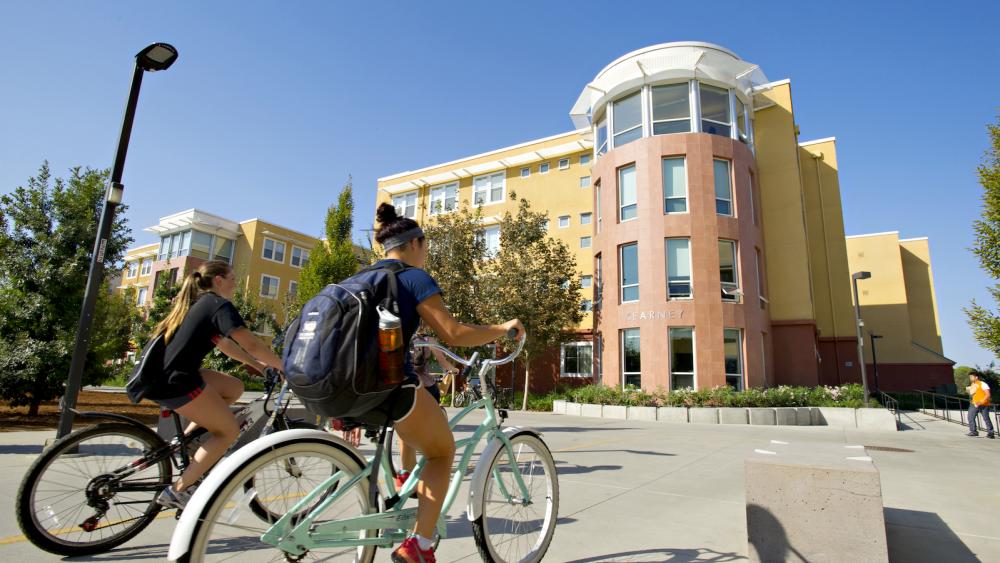
This public research university was founded in 1905 and is located in Davis, California (a city west of Sacramento). UC Davis prides itself on academic excellence and holds a reputation for solving food, health and environment-related problems. The Davis campus is the third largest in the University of California system and ranks among the nation’s top 20 universities in research funding; in fact, UC Davis received over $700 million in research funding for 2014-2015.
The Graduate Program of Computer Science at UC Davis offers two plans for the M.S. Degree, each with respective capstone requirements:
- S. Plan I: requires successful completion of a thesis and is typically completed in seven quarters
- S. Plan II: requires successful completion of either a project or a master’s exam and is typically completed in six quarters
Admission to UC Davis’ Master’s program is extremely selective. Research groups within UC Davis include: graphics and visualization, computer security, data analysis, networking, programming, software design, and more.
35. University of California— Santa Barbara
Currently ranked #37 overall among national universities, the University of California, Santa Barbara is a public university that was founded in 1891 and is the third oldest campus in the University of California system. Graduate programs at UCSB foster innovation and creativity, including the highly ranked College of Engineering.
The university’s College of Engineering is home to the highly-ranked Department of Computer Science, which was founded in 1979. UCSB’s research programs in Computer Science was ranked #26 in federal funding for academic research. The Master of Science degree program at UC Santa Barbara is fun, interesting and challenging; the degree may be completed with any of the following:
- Thesis
- Project
- Comprehensive examination
Both the Thesis and Project tracks require research. This can involve the design and execution of experiments, the proving of new theorems, the solving of open problems, the gathering and analysis of data sets, the invention of novel systems, the creation of new algorithms, the discovery of new applications of computing and/or among many other things.
36. Ohio State University 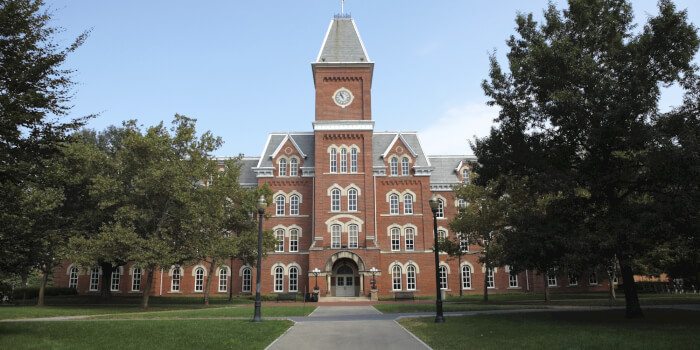
Ohio State University is a large, public university in Columbus, Ohio. OSU is the highest-ranked public university in Ohio and offers over 95 Master’s programs, and countless opportunities for interdisciplinary work.
The Department of Computer Science and Engineering at OSU prepares graduates who are highly sought after, productive, and well-respected in the field. OSU’s mission is to develop not only researchers, but educators and practicing professionals with incredible computing skills.
OSU offers a Master of Science Degree in Computer Science & Engineering (CSE) which provides education in the fundamentals of the industry. The Master’s program is divided into two tracks:
- Thesis Option (Research Track)
- Non-Thesis Option (Coursework Track)
Both tracks give graduates a solid background in theory and foundations of computing. The CSE department at OSU has research expenditures of over $6 million per year. Areas of research include: artificial intelligence, computer graphics, computer networking, high-end computing systems, and software engineering.
37. Washington University in St. Louis 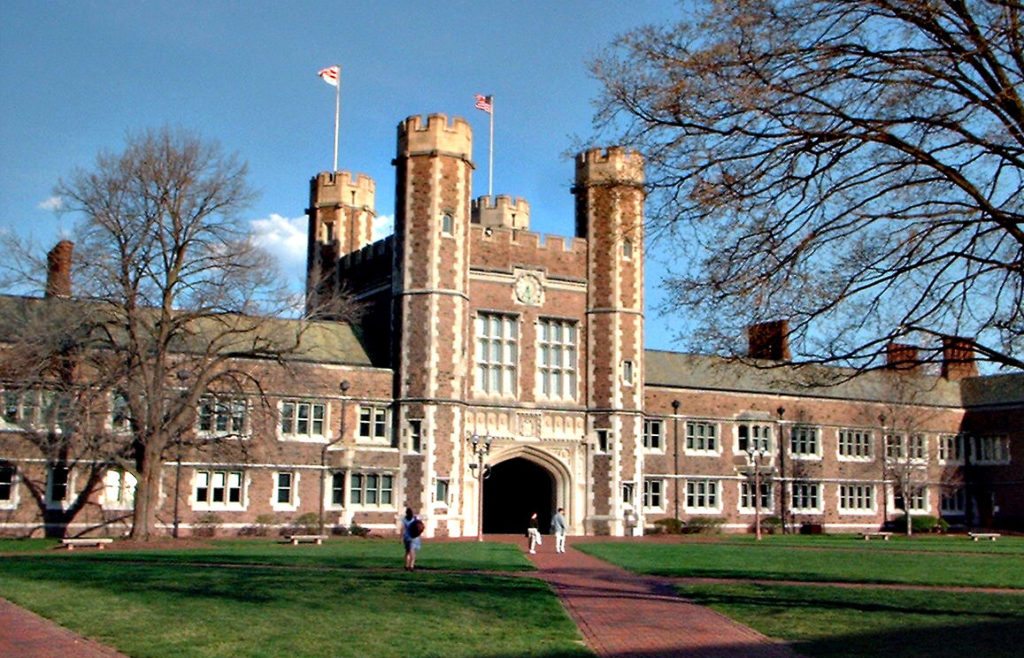
This private research university is not based in Washington State but, rather, St. Louis, Missouri. The school’s namesake comes from the nation’s first president, George Washington. Wash U ranks No. 19 overall among national universities in U.S. News & World Report’s 2017 “Best Colleges” rankings. Founded in 1853, Wash U drives wide-ranging exploration and inspires big ideas. Noteworthy alumni include: Tennessee Williams, Richard Ford and Joe Madison.
Wash U offers a MS in Computer Science through its tight-knit School of Engineering & Applied Science. Students who apply to this program should already have a computer science background. The MS in Computer Science can either be taken as a:
- Course Option
- Thesis Option
- Project Option
The department also offers a Master’s of Engineering in Computer Science & Engineering.
With over $27 million in annual research awards, Wash U prides itself on its research within human-computer interaction, graphics, artificial intelligence, networking, and computer engineering.
38. University of Minnesota— Twin Cities 
The University of Minnesota is a public research university and is ranked No. 14 in research and development expenditures among all U.S. public universities (ahead of Columbia and Yale, among other prestigious schools).
University of Minnesota’s College of Science & Engineering offers a variety of options for those looking to obtain a Master’s in computer science. First, there’s the M.S. program in Computer Science which has three tracks:
- Plan A Master’s Degree – Requires at minimum 21 credit hours of coursework and 10 credit hours of thesis coursework for a total of 31 credit hours.
- Plan B Master’s Degree – Requires 31 credit hours of coursework where thesis credits do not apply towards the total.
- Plan C Master’s Degree – This is a coursework-only degree and no committee or advisor of record is required for this plan.
The department also offers the MCS degree (Master’s of Computer Science) which is a coursework-only degree. Typically students who opt for this degree are currently working and have been out of school for a period of time.
39. Pennsylvania State University 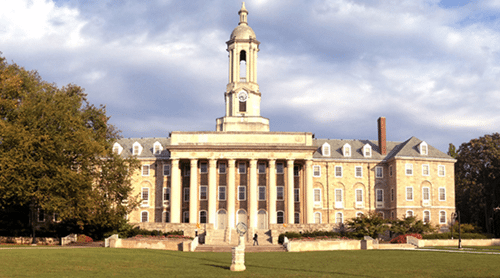
Penn State – University Park is a public institution that was founded in 1855. Penn State ranks No. 50 overall among national universities in U.S. News & World Report’s 2017 “Best Colleges” rankings. The University comes in at #14 among national public universities.
The Department of Computer Science and Engineering at Penn State was created in 1993 with the merger of the computer engineering program and the computer science department. Due to this merge, the department now offers two Master’s Degree options in Computer Science:
- Master of Science in Computer Science and Engineering
- Master of Engineering in Computer Science and Engineering
Both programs are one-year intensive master’s degree programs and require the completion of 30 credits. Both degrees are meant to prepare students for successful careers, teaching, or pushing the boundaries of computers research.
40. New York University 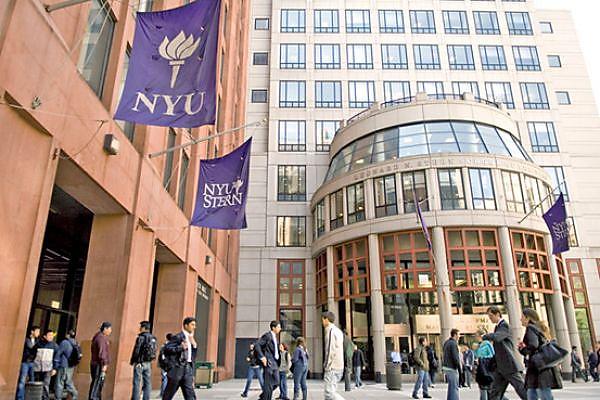
Based in the Empire State, NYU is a private research university that is always nearing the top of the rankings for best universities in both the United States and the world.
The Department of Computer Science at NYU offers a Masters in Computer Science (MSCS) which is specifically designed to create better thinkers, better programmers and better system architects. As technology is ever-changing, NYU teachings make it a point to provide students with current technology trends, as well as looking into the future. The school’s philosophy is to require students to master core topics and then let them specialize in application areas of their interest. While some degrees like this are research-based, NYU’s program is course-based. Courses must include:
- Three foundational courses in algorithms, programming languages and operating systems
- Two courses in different designated application areas, such as graphics and databases
- One course among the capstone courses that provide substantial programming exercises
NYU also offers a Master’s in Information Systems which combines computer science and business courses to help professionals reach management positions successfully because of their strong technical skills.
41. University of Florida 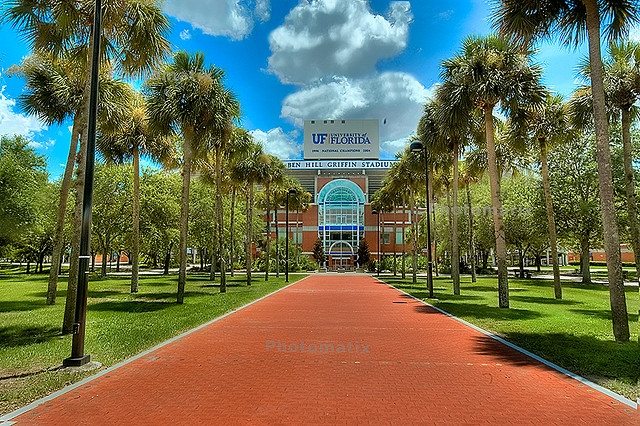
The University of Florida is an American public land-grant, sea-grant, and space-grant research university; these grants foster the university’s commitment to solving the world’s toughest problems and making a greater difference. UF is consistently ranked among the nation’s top universities.
UF offers a Master of Science in Computer Science through the Herbert Wertheim College of Engineering. Students can either opt for the thesis or non-thesis option. An online “distance learning” Master’s Degree is offered at UF as well, which includes the same requirements as the on-campus degree. Required core courses include:
- Analysis of Algorithms
- Programming Language Principles
- Any two of the following: Computer Architecture Principles, Distributed Operating System Principles, Computer Networks and Advanced Data Structures
CISE researchers study the theory, design, development and application of computer systems and information processing techniques. Research areas in the department include: Computer Graphics, Modeling and Art,Computer Systems, Database and Information Systems, Networks and Security, and more!
42. Vanderbilt University 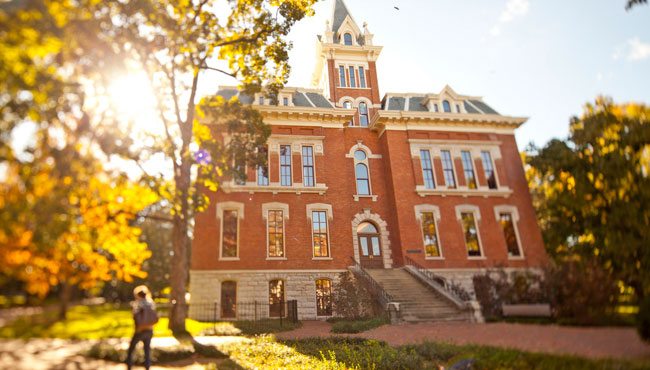
Located in Nashville, Tennessee, Vanderbilt is a private university that was founded in 1873. Vanderbilt is consistently ranked as one of the nation’s top 20 universities by U.S. News & World Report, and Princeton Review’s 2017 ranking of Happiest Students placed Vanderbilt second on the list (out of 20 colleges).
The department of Electrical Engineering and Computer Science (EECS) at Vanderbilt University is top ranked and offers a comprehensive Master of Science (M.Sc.) degree in Computer Science (CS). The program provides opportunities for students to learn more about topics including: artificial intelligence, computer animation and virtual environments, cyber-physical systems, human-systems integration, intelligent learning environments, and so much more.
The CS graduate program encourages both fundamental and interdisciplinary research. Vanderbilt provides students with state-of-the-art facilities to foster in-depth research activities.
43. Rutgers
Established in 1766, Rutgers is located in New Jersey and is the eighth oldest college in the United States. Dedicated to conducting cutting-edge research, the university offers more than 200 graduate programs and is home to nearly 300 research centers and institutes. Rutgers is currently ranked #25 on the best public school list, according to U.S. News 2017 Best Colleges rankings.
The Computer Science (CS) Department at Rutgers was established at Rutgers in 1966 and is among the best in the United States. The Master in Computer Science program is offered through the Rutgers School of Arts and Sciences. In a field that is ever-changing and growing as technology continues to develop, Rutgers stays ahead of the game and students are go on to build extraordinary professional careers within the industry.
Fundamental and advanced courses are offered at Rutgers in a variety of areas, including: algorithms, computer architecture, operating systems, networking, security, and more.
44. University of Notre Dame 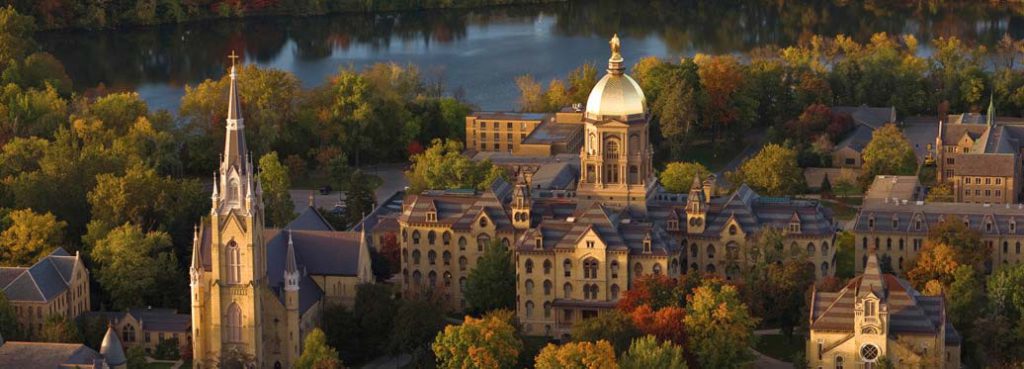
What started as an all men’s school in 1842, the University of Notre Dame is now an all-inclusive private research university in Indiana. Notre Dame consistently ranks among the nation’s top 25 institutions in surveys conducted by U.S. News & World Report, Time, Forbes, and others. In 2017, Notre Dame received a record-breaking $138.1 million in research awards.
The Department of Computer Science and Engineering is renowned its high faculty-to-student ratio, state of the art facilities, and emphasis on leadership, service, and ethics. The department offers the following degrees:
- D. in Bioengineering
- D. in Computer Science and Engineering
- Joint Ph.D. in Computer Science and Engineering and Psychology
- S. in Computer Science and Engineering
- Concentration in Big Data Analytics (optional)
- Concentration in Bioinformatics (optional)
The M.S. is a two-year program that is coursework-focused, resulting in advanced technical competency. This degree can be completed in four semesters and is open to students with a B.S. degree.
45. Texas A&M University— College Station 
This public research university is based in College Station, Texas (also known as “Aggieland”). Texas A&M offers 170 master’s degree programs and was ranked 2nd among public universities in the “Best Value Schools” category (U.S. News & World Report, 2016).
The Department of Computer Science and Engineering (CSE) at Texas A&M is celebrating over 25 years with a mission to develop the human and intellectual resources needed to meet the future technological challenges in the field of computing. The department offers two computer science master’s programs:
- The Master of Computer Science (MCS): A professional, terminal degree; Completion of this degree does not require a thesis, project, or final examination.
- The Master of Science in Computer Science (MSCS): A research degree in which a thesis and final examination (thesis defense) are required.
Students can select electives in: algorithms, languages and computability, software systems, computer systems and architecture, artificial intelligence and cognitive modeling, vision, graphics, robotics, computational science, and engineering.
46. Stony Brook University— SUNY 
The State University of New York at Stony Brook is a public sea-grant and space-grant research university. SUNY Stony Brook is among the top 1 percent of higher education institutions in the world (Center for World University Rankings) and among the top 50 public universities in the United States (U.S.News & World Report).
Stony Brook’s M.S. Program in Computer Science is designed to train students who have professional goals in business, industry, or government, requiring a detailed knowledge of computer science concepts and applications. The program concentrates on: applied computer science, emphasizing programming, software development, computer systems, and applications with appropriate theoretical background. Students in the M.S. degree program can choose between three options:
- Basic Project Option
- Advanced Project Option
- Thesis Option
No matter which option is chosen, all students are required to complete a minimum of 31 graduate credits in the Computer Science Department with a minimum GPA of 3.0.
47. University of Rochester 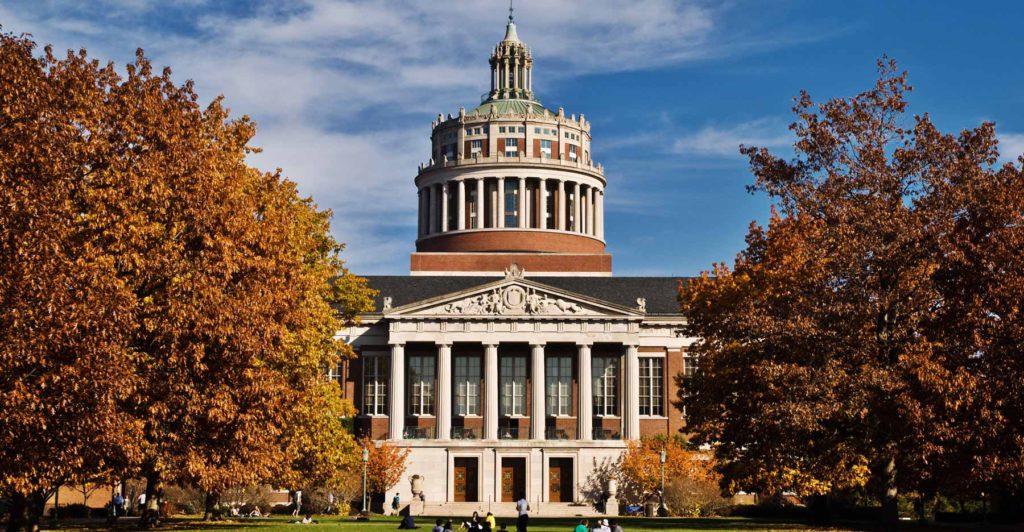
This private university in upstate New York was founded in 1850 and offers more than 200 academic majors. Rochester is ranked #76 in Reuters Top 100 Most Innovative Universities in the World and continues to lead the way in research and technology advances.
Rochester’s Hajim School of Engineering and Applied Sciences offers a Master of Science degree in Computer Science. The program was established in 1974 and offers much flexibility, encouraging cross-collaboration to prepare students for industry, research, and academic positions. Students can focus on one area of computer science, or take a variety of courses across the field. Courses may include:
- Data Sci for Linguistics
- Big Data Computer Systems
- Cryptography
- Data Mining
The MS CS degree may be completed on a full-time or part-time basis. It’s important to note that this degree is designed for students who do not intend to complete a PhD degree at University of Rochester.
48. Virginia Tech
Virginia Tech is a public, land-grant, research university with a main campus in Blacksburg, Virginia. The school offers 250 undergraduate and graduate degree programs and manages a research portfolio of more than $500 million. Virginia Tech ranks 44th for university research in the United States and, over the past 5 years, US News and World Report the VT Computer Science graduate program has increased steadily from 46th to 40th place.
The Master of Science degree in Computer Science at Virginia Tech provides graduates with a solid foundation in computer science while still offering flexibility to meet the needs and interests of each individual. The M.S degree is completed through either the thesis or the coursework option:
- The thesis option requires 30 credits of coursework (of which typically 21 credits must derive from courses).
- The coursework option requires 33 credits derived from courses.
Students in good standing typically complete either degree option in two years. The thesis option is strongly encouraged as it provides students with an in-depth research experience, which Virginia Tech is known for.
49. Rensselaer Polytechnic Institute 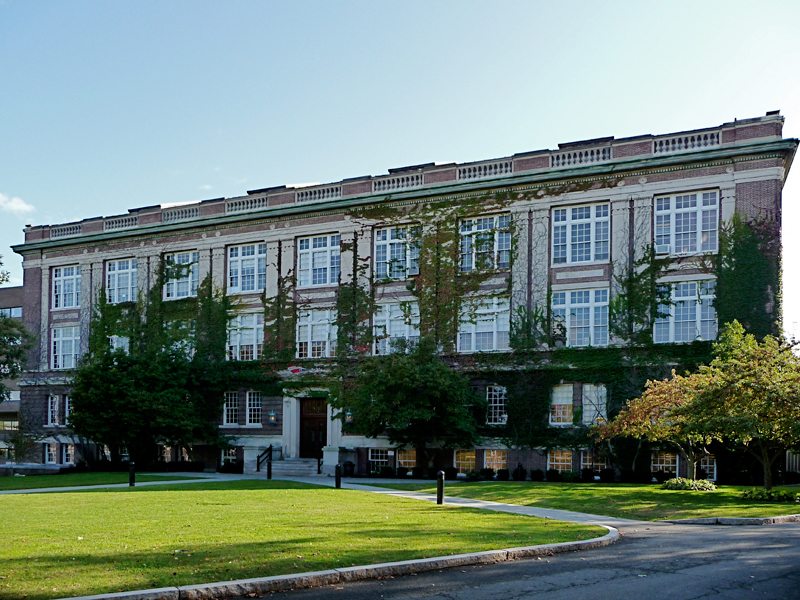
A private research university and space-grant institution located in Troy, New York, RPI is the oldest technological research university in the United States. RPI offers 145 programs at the bachelor’s, master’s, and doctoral levels. The Institute’s motto is, Why not change the world?, which students and faculty members alike embrace, full force.
The Master of Science degree in Computer Science at RPI is a technical degree; students may advance to positions of responsibility in the computing field with a solid foundation of knowledge. An M.S. degree from RPI prepares graduates to successfully plan, design, and conduct independent, publishable-quality research or an extensive independent project. Graduates will also demonstrate a solid understanding of computer systems, algorithms and theory, and the application of computer science.
Students may also choose one of two specializations; MS in Computer Science with specialization in Robotics or MS in Computer Science with specialization in Computational Science and Engineering. Both specializations have detailed requirements for graduates to complete.
50. North Carolina State University
North Carolina’s largest university, NC State is a public research university located in the heart of the Research Triangle, Raleigh. A national hotspot for high-tech enterprise, companies in this region are among the country’s best employers and hire many NC State graduates. NC State is a leader in emerging fields such as analytics, nanotechnology, biotechnology and biomedical engineering.
The NC State Computer Science Department is one of the oldest and largest in the nation and is celebrating 50 years of excellence in 2017. The department offers a variety of different degrees, including:
- Master of Computer Science: No research, thesis or comprehensive examination is required for this degree.
- Master of Science (MS) in Computer Science: This is a research-oriented degree.
- Master of Computer Science (Distance Education): This degree is primarily to meet the needs of working professionals.
No matter the program, NC State’s faculty and students benefit from the outstanding infrastructure and research facilities on site. Students leave NC State well-equipped to be competitive, to succeed, and to contribute to the greater good and well-being of society.


